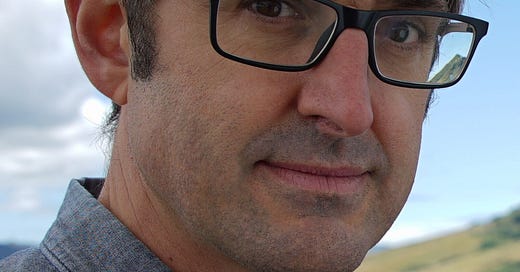In Conflict.
Why The Settlers Fails to Do Justice to the Complexity of the Israeli-Palestinian Conflict.
Last week I received a message from an old friend. She asked whether I had seen The Settlers, the recent documentary by Louis Theroux, and whether I would be willing to post something about it on my Instagram. She explained that she mainly lives in a left-leaning bubble where she hears only one perspective and was curious to hear mine.
At first, I struggled with the request, because it gave the impression that my opinion is somehow public property—something others feel entitled to by default. Still, I decided to give her the benefit of the doubt. So after some thoughtful consideration, I thought: why not.
I’ve always been a fan of Louis Theroux’s documentaries. I appreciate his calmness, his patience, and his ability to bring nuance—even in the most extreme situations. Yet I felt some immediate hesitation when I heard he had once again made a documentary about the radical settler movement.
“Watching the documentary raises an essential question: what should Palestinian self-determination look like in practice?”
In the discourse surrounding the Israeli-Palestinian conflict, these groups are often used as a tool to delegitimize Israel as a whole. I believe that’s wrong—just as I believe it’s wrong to use the existence of Palestinian terror organizations to deny Palestinians their right to self-determination. Arguments like these get us nowhere. They are not only unhelpful in resolving the conflict, but they also harm both Israelis and Palestinians.
Theroux, in fact, brings us little that is new. Anyone familiar with the ideology of the settlers knows what their aims are—and how dangerous these groups can be. These are Jewish fundamentalists who seek to fulfill messianic prophecies, including bringing the geographic and spiritual heart of Israel under full control of the Israeli state.
Theroux mainly shows how this process appears to have accelerated since October 7th, partly enabled by Netanyahu’s far-right government. The situation now looks more hopeless than ever.
What I find regrettable, however, is that Theroux—especially given his role in informing ordinary citizens here in the West—missed the opportunity to shed more light on the other side of the conflict as well. He could have interviewed more Palestinians to share their views and attitudes toward Israel. That would have contributed to a fuller picture of the complexity of the Israeli-Palestinian issue. This perspective was completely absent.
Watching the documentary raises an essential question: what should Palestinian self-determination look like in practice? Should it be achieved through an independent, sovereign Palestinian state? Or could it also exist within the borders of Israel, under Israeli governance, with equal rights and opportunities—just like any other Israeli citizen?
“As a journalist with his reputation, Theroux had the opportunity to pull audiences out of their ideological bubbles—both left and right.”
After all, around two million Muslim Arabs live in Israel. They hold Israeli citizenship, and some even serve in the military. Israel has already shown that coexistence is possible.
Yet under the current Israeli government, that possibility seems to be fading further from view. This government appears more focused on displacement than on integration—something that stands in stark contrast to the Jewish values on which the state of Israel was originally founded.
As a journalist with his reputation, Theroux had the opportunity to pull audiences out of their ideological bubbles—both left and right. Instead, The Settlers largely confirms what most viewers likely already thought. As a result, it isn’t a documentary that deepens the discussion, but one that further simplifies it. And anyone who wants to push back against that simplification must be willing to recognize the reality and the pain on both sides.





